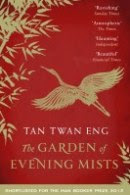Then he comes up with a treatise on how to cook stuff in a rice pot, a teaser of which I'd stumbled upon while drifting aimlessly across the Web.
The eloquence. The use of words. The inner me hung its head in shame as he extemporised the many things that a rice pot and a few utensils can do for "you, student in your dorm room. You, solitary writer, artist, musician, potter, plumber, builder, hermit. You, parents with kids. You, night watchman. You, obsessed computer programmer or weary web-worker." He could've added, "You, lazy-ass wannabe journo/reviewer."
The power of that inspiring, mouth-watering piece on the rice pot is amplified when I heard that he'd written it after he lost his lower jaw and couldn't eat any more. It was the closest I had come to tearing up over a stranger's plight (though it didn't seem so) and he kicks the knife in by sucking it up, cancer and all, and continue to do his work.
"Yes, sir," Inner-Me mumbled, scuffing its heels on the ground. "Yes ... yes ... Yes, sir. Yes, I understand, sir. 'Get off my lazy ass and grab a rice cooker'? Right away, sir."
I've never read anything substantial from him since. Nor did I grab that pot, despite the temptation. For the nth time, I've seen someone else do something I want to and can do but can't because of age, experience, cred, platform, lack of a Pulitzer, etc.
For the nth minus 1 time, I wished I'd begun writing in earnest when I was, say, 20 instead of 32; I could have 'made it' by now - or next year the latest.
I could vent and rave like nobody's business and people would take me seriously. They'd send me places, and I'd write it up so that people would go there in droves, lemming-like, even if they had to sell their kidneys for airfare.
But this is Malaysia, where you won't be noticed unless you write about politics. And one year in real journalism revealed my lack of a stomach for the kind of things a journo has to do to feed himself. Also, why-lah are the powers that be sooo sensitive?
So I cut my teeth reviewing books and eating places, and the occasional movie or music album. No way I can offend anyone when writing things that won't be read.
...Right, I did offend some people. Not discussing that here, though.
At some point, I buried my dreams of a Pulitzer and the like, and just write and write and write. But not enough, I feel. I've so many things left unsaid. Never mind writing - I'd just stop living if I'd ended up like Ebert in his final years. On top of it all, I'll never be 'good' or 'qualified' enough to criticise or call out certain things.
One glimmer of hope came in John Scalzi's obit of Ebert where he pointed out (emphasis mine):
...as passionate as he was about film, he wasn’t precious about it. Ebert loved film, but what I think he loved most of all was the fact that it entertained him so. He loved being entertained, and he loved telling people, in language which was direct and to the point (he worked for the Sun-Times, the blue collar paper in town) what about the films was so entertaining. What he taught me about film criticism is that film criticism isn’t about showing off what you know about film, it was about sharing what made you love film.
I don't know if I'll ever see you at the movies, Mr Ebert (I'm Asian, we don't do the first-name thingy with our elders), but "sharing what made you love [whatever]"? That I can do. And I'll continue to do it until I 'get there', where I can, among other things, slice and dice like a conscientious, knowledgeable pro.
Though I wasn't with you on your journey, I'd love to see you off. Hope you don't mind.
And thank you, sir, for everything.
Categories:
Uncategorised







